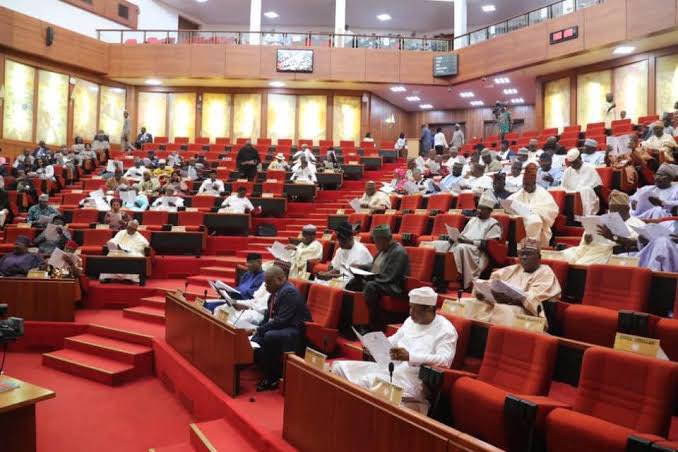
Senate Sets N10tn Revenue Target for Customs in 2025
The Senate Committee on Customs has directed the Nigeria Customs Service (NCS) to raise its 2025 revenue projection from ₦6.584 trillion to ₦10 trillion, citing the Service’s strong performance in the current fiscal year.
This directive came during the budget defence session held by the Committee on Customs, where the Deputy Comptroller-General, Jibo Bello, representing the Comptroller-General of Customs presented the agency’s 2024 budget performance and 2025 fiscal proposal.
Isah Jibrin, chairman of the committee and senator representing Kogi East, acknowledged the NCS’s commendable achievement of exceeding its 2024 revenue target of ₦5.079 trillion by over ₦1 trillion.
However, he insisted that the Service must aim higher in 2025 to support the nation’s economic goals.
Following deliberations, the Committee approved the proposed revenue target of ₦6.584 trillion and an expenditure of ₦1.132 trillion, but also made a strong case for an upward adjustment of the revenue target to ₦10 trillion.
The recommendations are expected to be presented for consideration on the Senate floor as plenary resumes Tuesday, June 24, after the Sallah break.
In his concluding remarks, Senator Jibrin urged the NCS to strengthen its surveillance and enforcement capabilities, particularly in combating the proliferation of illicit drugs and smuggling activities.
“There’s an alarming flow of illicit drugs in the country, and this is fuelling insecurity. Many of those involved in banditry are under the influence of drugs. So, while focusing on revenue generation, Customs must not lose sight of these critical responsibilities,” he said.
He further emphasized the economic impact of unchecked smuggling, noting that Nigeria continues to witness the influx of goods that could easily be produced locally.
“Many of these smuggled items are things we can manufacture here, even in their simplest forms.
“The President has repeatedly encouraged Nigerians to patronize locally made products. This is not just rhetoric; it’s a call to preserve our foreign exchange and stimulate local production,” Jibrin added.
He concluded by noting that promoting local consumption would create employment, activate the use of raw materials currently lying idle, and ultimately strengthen the economy.
